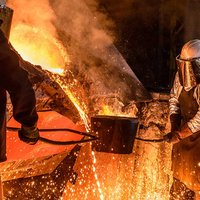15 Insights on the Global Steel Transformation
Study by Agora Industry and the Wuppertal Institute lines out how the global steel sector can become net zero by the early 2040ies

Study by Agora Industry and the Wuppertal Institute lines out how the global steel sector can become net zero by the early 2040ies

Steel is a fundamental basic material in numerous industries and demand is on the rise globally. At the same time, the steel industry is one of the sectors with the highest CO2 emissions. For these reasons, it is a key player in the transition to a climate-neutral industry and global efforts to limit climate change. The sector is often labelled as a hard-to-abate sector but has the potential to turn into a fast-to-abate sector. The phase-out of coal in steelmaking, a swift roll-out of clean technologies and the creation of an international green iron trade can put the global steel industry on a 1.5°C-compatible emissions reduction pathway. "This transformation requires targeted regulatory frameworks and expanded international cooperation," highlights Prof. Dr. Stefan Lechtenböhmer, Director of the Future Energy and Industry Systems Division at the Wuppertal Institute and co-author of the study.
It is technically feasible for the global steel sector to reach net-zero greenhouse gas emissions by the early 2040s, a new study by think tank Agora Industry and research institute Wuppertal Institute finds. This can be achieved through strategic investment in key technologies such as direct reduced iron (DRI), a coal phase-out in steel production and by establishing a green iron trade. During the online seminar, today on 15 June 2023, Stefan Lechtenböhmerand Wido Witecka, Project Manager at Agora Industrie, presented the results of the study "15 Insights on the Global Steel Transformation".
The study was produced within the project "Global Steel Transformation" (GloSTra). The 58-page publication is available free of charge via the link below.
